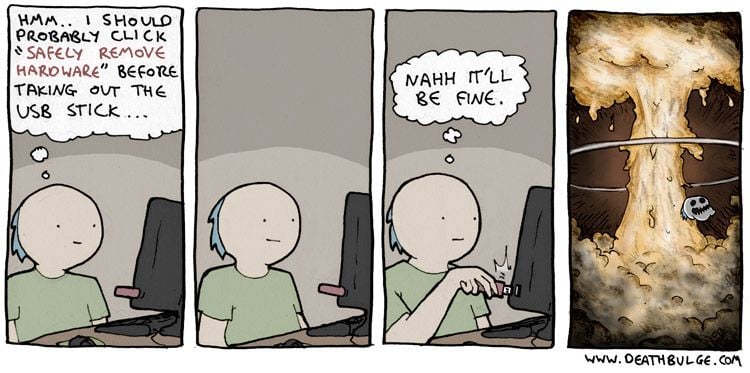this post was submitted on 11 Jan 2025
441 points (97.8% liked)
Comic Strips
13130 readers
3524 users here now
Comic Strips is a community for those who love comic stories.
The rules are simple:
- The post can be a single image, an image gallery, or a link to a specific comic hosted on another site (the author's website, for instance).
- The comic must be a complete story.
- If it is an external link, it must be to a specific story, not to the root of the site.
- You may post comics from others or your own.
- If you are posting a comic of your own, a maximum of one per week is allowed (I know, your comics are great, but this rule helps avoid spam).
- The comic can be in any language, but if it's not in English, OP must include an English translation in the post's 'body' field (note: you don't need to select a specific language when posting a comic).
- Politeness.
- Adult content is not allowed. This community aims to be fun for people of all ages.
Web of links
- [email protected]: "I use Arch btw"
- [email protected]: memes (you don't say!)
founded 2 years ago
MODERATORS
you are viewing a single comment's thread
view the rest of the comments
view the rest of the comments

I don't think this has been a thing for a while now.
Only on Windows as far as I'm aware.
Linux and MacOS still struggle with it.
The standard "interchange" filesystem on USB sticks that everything can understand is still FAT.
FAT is not a journalling filesystem -- you can still corrupt the thing if you interrupt use of a mounted drive.
Plus, even if you have a journaling filesystem, it's probably good practice to unmount because even though you won't corrupt the filesystem, it still might be that data won't have been written to said drive -- like, if you save a new version of the file, you might have the old version of the file.
It could be that OSes have tried to be more aggressive in buffer management, tried to flush dirty data to USB flash drives or something sooner to help shrink the size of the window in time where issues can come up. But I still wouldn't just go running around yanking USB flash drives out of machines without unmounting them -- that's the only situation for which you can be guaranteed no issues.
EDIT: Honestly, I think that it's a little disappointing that it's the case that we don't handle this well in 2025. Apple handled removable media on Macs with 3.5 inch disks correctly by having the user ask the OS to do the eject, which physically ensure an unmounted disk prior to eject. They did have a pinhole for an "emergency" eject, but the normal case was for a clean unmount. DOS and Windows used a mechanical eject button, which was still liable to see issues.
checks Zip drives
It looks like Zip drives had a software eject button, so they'd also be able to ensure an unmount.
CD-RW drives have a software eject button -- the OS tells the drive to lock the tray prior to beginning a burn -- so they were okay too.
I'd guess, though I don't have experience, that tape drives probably all ensure a clean unmount.
But USB flash drives, probably the most common form of transportable writeable media in 2024, don't, which is a little disappointing.
How is a usb stick supposed to react if you unplug it while it was trying to write something?
Exactly the same as before. Just the written file is corrupted.
At least, that is how it works on Windows. I've tested it.
I've bombed a couple in the last few years since they didn't have an indicator light, and I was in a rush.
Which OS?
Win 10